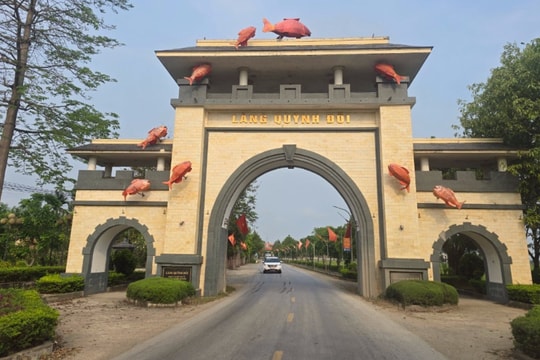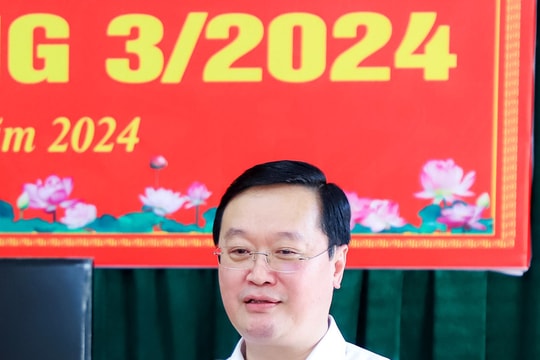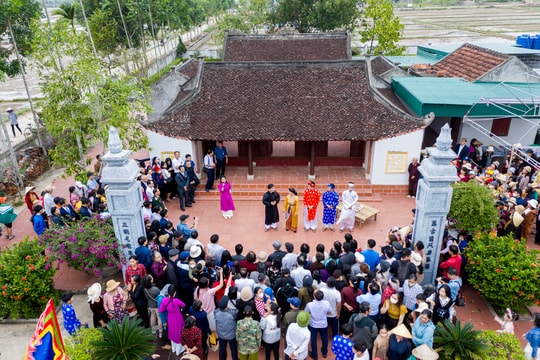Ho Tung Mau - a shining example of noble morality
(Baonghean.vn) - Comrade Ho Tung Mau is a shining example of revolutionary ethics of humanity, justice, intelligence, and bravery; diligence, thrift, integrity, uprightness, impartiality, and selflessness. He devoted his entire life to the people, to the Fatherland, to the Party, and to the revolution. His name is the pride of the country and homeland.
He was born and raised in a family, a clan, a homeland with a rich cultural, patriotic and revolutionary tradition. From birth to his last moment, Ho Tung Mau continued to write the glorious history of his family and clan, "Generation after generation for the country". He was consistent in one noble way of life and being a human being: For the country, for the people, forgetting oneself for a great cause.
Comrade Ho Tung Mau's entire life of revolutionary activities clearly demonstrated the pure, good revolutionary qualities of a true, steadfast communist.
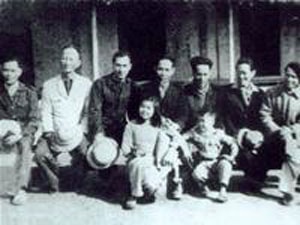 |
| Comrade Ho Tung Mau (sitting in the middle, back row). |
Comrade Ho Tung Mau is a famous person whose most noble title is communist. In the early days of the revolutionary fire, Ho Tung Mau was an early activist, spending many years in patriotic and revolutionary movements in Thailand and China. Ho Tung Mau, along with comrades Le Hong Phong, Le Hong Son, and Pham Hong Thai, founded the Tam Tam Xa group. Ho Tung Mau was one of the first people to join the Vietnam Revolutionary Youth Association. This was the predecessor organization of the Communist Party of Vietnam founded by Nguyen Ai Quoc. Comrade Ho Tung Mau himself attended the political training classes of this organization.
At the conference to unify communist organizations in Vietnam in Kowloon (Hong Kong, China), comrade Ho Tung Mau assisted the representative of the Communist International Nguyen Ai Quoc and helped with the work for the conference to establish the Communist Party of Vietnam. Thus, comrade Ho Tung Mau belongs to the class of revolutionary predecessors.
Comrade Ho Tung Mau was one of the people who was close to Nguyen Ai Quoc, a student and an effective assistant. When Nguyen Ai Quoc was illegally imprisoned by the British government in Hong Kong in 1931, Ho Tung Mau was the one who actively contacted the International Red Relief Society and mobilized lawyer Logiebai to use legal means to fight to force the British government in Hong Kong to release Nguyen Ai Quoc.
Comrade Ho Tung Mau was also arrested by the British police in Hong Kong (June 1931) and deported from the British Concession to Vietnam and sentenced to death, later reduced to life imprisonment. Like many other loyal revolutionary soldiers of the Fatherland, Comrade Ho Tung Mau devoted his entire life to the nation. His entire life, from his youth until his death (July 23, 1951).
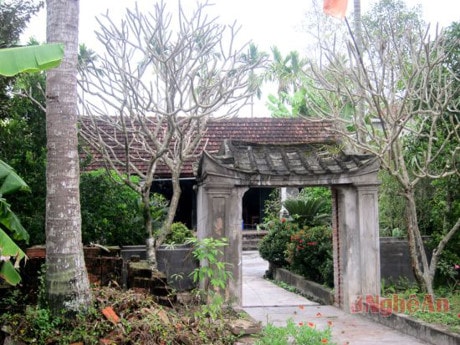 |
| Ho Tung Mau Temple. |
In Ho Tung Mau, there is the courage and intelligence of a soldier with a strong revolutionary will, a person full of humanity, understanding and appreciating cultural values - a leader close to humanity. During his years as Chairman of the Administrative Committee of the Resistance of Inter-Zone IV, then holding the position of Inspector General of the Government, comrade Ho Tung Mau worked selflessly with a friendly, simple and generous style.
He has great prestige among the people and cadres, and is affectionately called “Mr. Mau”, “Mr. Ho”. Regardless of his position, comrade Ho Tung Mau has always shown himself to be an upright and loyal veteran cadre, always ready to perform his duties with a high sense of responsibility. With good revolutionary qualities of diligence, thrift, integrity, impartiality, and a spirit of dedication, integrity, and “Putting work first”.
Diligence, thrift, integrity, impartiality. This moral quality of Ho Tung Mau was demonstrated by the fact that President Ho Chi Minh chose him to be the first Inspector General of the Government. Ho Tung Mau was chosen because he was both moral and talented, with the ability to distinguish right from wrong in implementing the policies of the Party and the Government in public agencies and individuals with power and property entrusted by the people. He always put the people first, hated privileges, and never took advantage of his authority and position to seek personal or family benefits.
Compassion, tolerance, and generosity are the noble human qualities of Ho Tung Mau. Loving and forgiving people are his innate virtues that were revealed from childhood. Love for people was developed and gradually improved with awareness and practical activities. Love for relatives in the family, love for neighbors, people in the same situation, love for comrades, compatriots who were exploited and oppressed, love for ethnic groups, enslaved masses who were exiled. From love for compatriots, he reached love for fellow human beings and attained noble communist humanism.
To his family members, comrade Ho Tung Mau had deep love and thoughtful care: Many times he suppressed his own pain to stand firm and follow the chosen path. To his homeland, he was close and shared his responsibilities. To his subordinates and colleagues, he was always attentive and caring... Everything about him exuded the nation's eternal morality: love for the country, love for the people, kindness to people... The beauty in his personality illuminated and spread the cultural values of our Party.
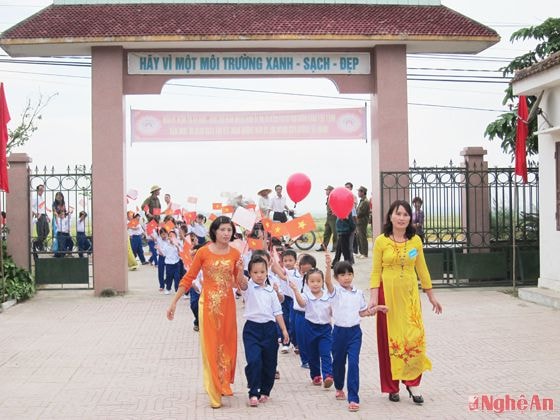 |
| Teachers and students of Ho Tung Mau Secondary School, Quynh Doi Commune (Quynh Luu). |
Comrade Ho Tung Mau was recognized as a typical revolutionary leader of the Party. On January 18, 2008, the President signed a decision to posthumously award the noble Medal - Gold Star Medal to Comrade Ho Tung Mau.
The moral example of Ho Tung Mau with specific moral expressions and standards should be considered a practical moral model that our society is aiming to build: loyal to the country, filial to the people, maintaining the working class stance, knowing how to distinguish right from wrong, living simply, modestly, industriously, thriftily, honestly, impartially. Comrade Ho Tung Mau is a great example of lifelong dedication to the ideals of the Party and the revolution, taking the independence of the Fatherland and freedom for the people as the reason for living.
Peace(Synthetic)

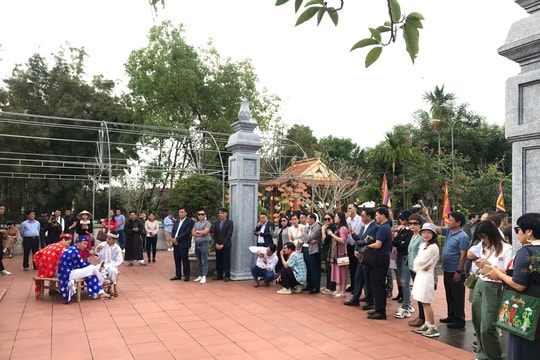
.jpg)
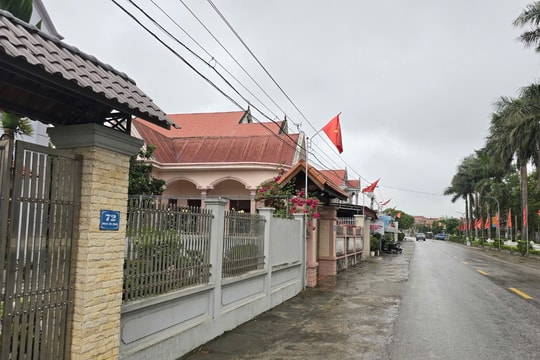
.jpg)
